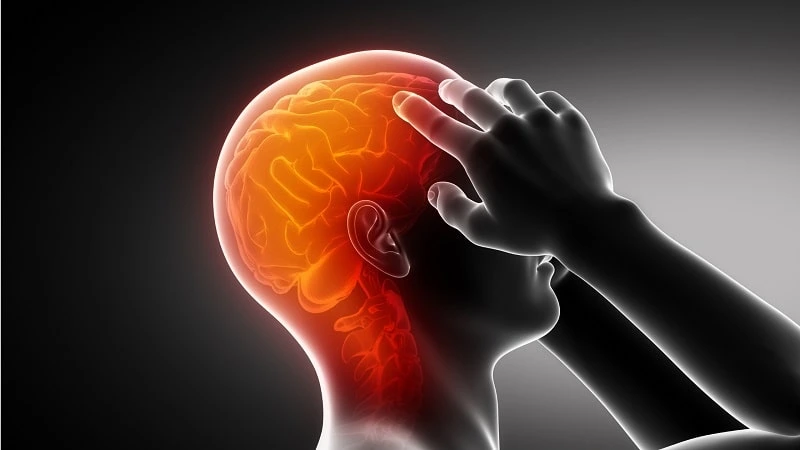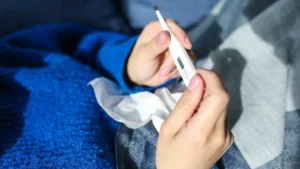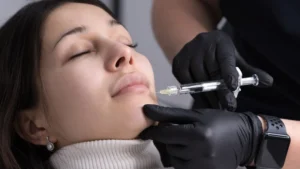Have you ever had a painful sensation on one side of your head and teeth? This discomfort, known as “Toothache and Headache on One Side,” can be quite bothersome. When the teeth on one side hurt along with a throbbing head, it can affect your daily life. This topic is essential because it helps us comprehend why these discomforts happen together and what we can do about them.
By exploring the connection between toothache and headache on one side, we can learn to manage and prevent these pains. So, if you’ve ever wondered about that ache on one side, keep reading to understand more about it and find ways to deal with it effectively.
What are Toothache and Headache?
Explaining Toothache
Toothache is the discomfort felt in teeth due to various reasons. Dental cavities, infections, and gum diseases can lead to toothaches.
These issues expose sensitive nerves, causing pain. You might notice pain while eating, drinking, or even just when air touches the affected tooth.
Read More: Fever Chills Body Aches Headache Fatigue No Cough: What Does It Indicate?
Describing Headaches
Headaches are pains in the head, and they come in different types. Tension headaches stem from muscle tightness and stress.
Migraines are intense headaches often with nausea and sensitivity to light. They can be triggered by stress, certain foods, or environmental factors like bright lights.

The Possible Link
Some nerves are shared between your teeth and head. This is why tooth problems might lead to headaches on one side.
Dental issues can stimulate these shared nerves, causing discomfort. Additionally, dental treatments that involve your head and neck muscles can also trigger headaches.
Toothache and Headache on One Side
Recognizing the Symptoms
Symptoms of Toothache and Headache on One Side
Toothache and headache on one side often come together, causing discomfort. The pain is usually localized to one side of the head and specific teeth. It can vary in intensity from mild to severe and might radiate to nearby areas.
Understanding the Causes
Common Causes of Combined Toothache and Headache
- Dental Problems Affecting Nerves: Dental issues like infections or cavities can affect nerves, leading to toothache. These same nerves are connected to the head, causing a one-sided headache.
- Impact of Dental Treatments: Some dental treatments involve head and neck muscles. This can trigger headaches, especially if you have a sensitivity to these procedures.
Read More: Pain in Transplanted Kidney Area
Seeking Professional Help
Consulting Experts for Relief
If you experience persistent toothache and headache on one side, it’s wise to seek help from both a dentist and a doctor.
A dentist can address any dental issues causing discomfort, while a doctor can help manage the headache aspect.
Prevention and Management
Maintaining Good Oral Hygiene
Effective Oral Care Practices
- Proper Brushing Techniques: Brush your teeth gently using fluoride toothpaste. Pay attention to the gum line and all tooth surfaces.
- Flossing Regularly: Use dental floss to clean between teeth, removing food particles and plaque.
- Regular Dental Check-ups: Visit your dentist for routine check-ups. Early detection of dental issues can prevent toothaches.

Adopting Healthy Habits
Lifestyle Adjustments for Well-being
- Stress Reduction: Practice relaxation techniques like deep breathing, meditation, or yoga to minimize stress-triggered headaches.
- Hydration and Balanced Diet: Drink enough water and maintain a diet rich in fruits, vegetables, and whole grains. Avoid excessive caffeine and processed foods.
Read More: Loose Gum Flap Between Teeth
Exploring Treatment Options
Addressing Toothache and Headache
- Dental Treatments: If toothache stems from dental problems, your dentist can recommend appropriate treatments such as fillings or root canals.
- Headache Management: Over-the-counter pain relievers can help manage headaches. Consult a doctor for severe or recurring headaches.
Conclusion
Understanding the interplay between toothache and headache on one side is crucial for managing these discomforts effectively.
By recognizing the symptoms and grasping the connection between dental issues and headaches, you can take steps to alleviate pain and prevent future occurrences.
Timely consultation with both a dentist and a doctor can provide comprehensive relief and improve your overall well-being.
Remember that maintaining good oral hygiene, adopting stress-reducing techniques, staying hydrated, and following a balanced diet are fundamental in preventing these issues.
Professional dental treatments and headache management strategies offer effective solutions when needed.
Prioritizing these measures enhances your quality of life by minimizing the impact of toothache and headache on one side.
FAQs
1. Can a dental problem really cause headaches on one side?
Yes, dental problems that affect shared nerves can trigger headaches on one side.
2. How can I tell if my toothache and headache are connected?
If the pain is on the same side of your head and teeth, and they occur simultaneously, there’s likely a connection.
3. Are there specific dental issues that commonly lead to this discomfort?
Yes, dental cavities, infections, and gum diseases are common culprits.
4. Can I use over-the-counter pain relievers for relief?
Yes, over-the-counter pain relievers can help manage the discomfort, but consult a doctor if pain persists.
5. What can I do to prevent toothache and headache on one side?
Practicing good oral hygiene, managing stress, staying hydrated, and maintaining a healthy diet are key preventive measures.
6. Are there any relaxation techniques that could help with headaches?
Deep breathing, meditation, and yoga are effective relaxation techniques that might reduce headache frequency.
7. When should I consult a dentist for my toothache?
If you experience persistent tooth pain, it’s advisable to consult a dentist for proper diagnosis and treatment.
8. Can dental treatments really trigger headaches?
Certain dental treatments that involve head and neck muscles might trigger headaches, especially if you’re sensitive to these procedures.
9. Should I consult a doctor for every headache I experience?
While occasional headaches might not require medical attention, recurring or severe headaches should be discussed with a doctor.
Medical References
- Smith, A. M., & Refai, H. (2019). Headache and Facial Pain. In StatPearls. StatPearls Publishing.
- American Dental Association. (2020). Toothache.
- Mayo Clinic. (2020). Toothache.
- National Institute of Dental and Craniofacial Research. (2018). Toothache.
- American Migraine Foundation. (2021). Types of Headaches.
- NHS. (2021). Toothache.



